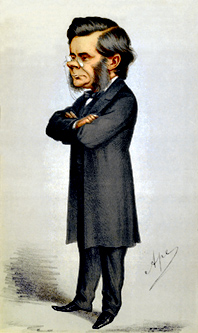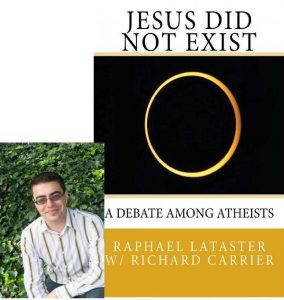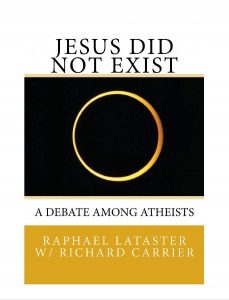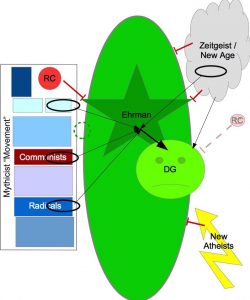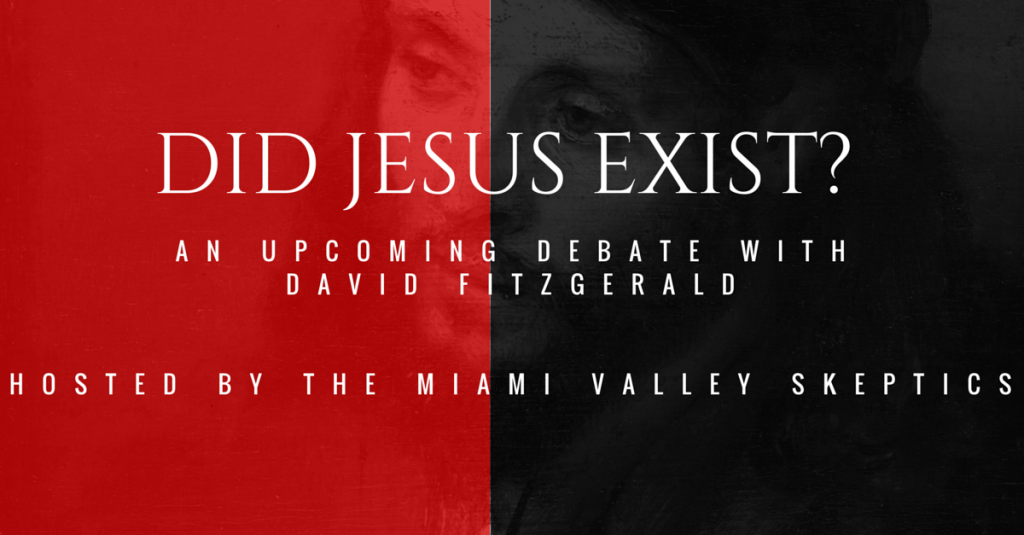It’s been a long time since I’ve addressed any of James McGrath’s regular little swipes at mythicism but it’s a dreary rainy Sunday morning and I’m in a mood for nostalgia.
The following has just popped up on my rss feed: The Real Difference Between Creationism and Mythicism. The point McGrath drives home is set out twice, once in a colourful box illustrated with a silly creationist trope of a man with his pet dinosaur:
Creationists can find 3,000 academics who will sign a statement against evolution. That’s not 3,000 academics in relevant fields, just 3,000 academics, including retired ones. I’ve yet to see mythicism show any sign of even coming close to that. And yet supposedly we are to believe that creationism’s 3,000 are irrelevant, but the 10 or so mythicist sympathizers show that the historicity of Jesus is “a theory in crisis”?
The point is to denigrate the very idea of mythicism in order to exclude its actual arguments a priori from any serious consideration. The idea is to associate mythicism with anti-intellectualism and an ideologically driven agenda. The comments to the post sing the chorus: a few ignorant atheists are misguidedly pushing an anti-Christian agenda.
There is no quotation from a mythicist (not even a decontextualised one) so what mythicists think and argue is entirely found in both the context and words set out by McGrath himself.
And here is the rebuttal:
Unless, of course, the evidence for that conclusion is considered so strong, and the alternative interpretations of the evidence so implausible, that there aren’t that many academics who would be willing to put their name on something that is, in the end, every bit as ridiculous as rejecting evolution, however different the fields in question may be.
Are we really to believe that as “many academics” who admit to being sympathetic to creationism have actually bothered to seek out and analyse the evidence for the existence of Jesus? Why would they? Is Jesus really so important to the non-religious? I hear that belief in Christianity is much more important in the U.S. than it is in other countries so I can understand the importance of fundamentalist types putting up their hands to declare support for certain beliefs there. I hear that in the U.S. it is even problematic in many regions to declare oneself an atheist!
And as long as Christian scholars like McGrath continue to accuse mythicists of being intellectually deficient then one can sense a climate that makes public discussion of Jesus’ historicity somewhat problematic for some academics who might otherwise be curious.
There are too many faulty assumptions and fault-lines in the reasoning leading to McGrath’s conclusion to address here. Besides, I don’t believe anything said to the contrary will make any difference to the anti-mythicist camp. There really is some truth to the proverb that says the accuser is in fact the guilty one.
The point is that the post is not an argument; it is a put-down, a dismissal. And that is what it is meant to be. There is no room for serious argument. There never has been. I think Raphael Lataster is right.

